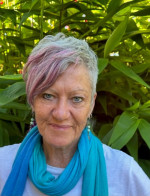Where can I do MBSR in Coffs Harbour
Coffs Harbour |
Shala Wellness Studio: 35 Orlando Street, Coffs Harbour | Register Here |

Mindfulness Based Stress Reduction (MBSR) is an eight-week foundational mindfulness meditation training happening in Coffs Harbour which is evidence-based, practical and empowering. As seen on Catalyst TV.
Mindfulness Based Stress Reduction (MBSR) is the original evidence-based, user-friendly program that brings the principles of mindfulness meditation into everyday life by teaching specific skills and practices to help break cycles of anxiety, stress, unhappiness and exhaustion.
Openground is proud to be endorsed by Emeritus Professor Jon Kabat-Zinn – who developed MBSR at the University of Massachusetts Medical School in 1979 for people suffering chronic and acute stress, chronic pain and illness, and associated anxiety and depression. As seen on ABC Catalyst TV.
If you have access to some financial security: that is, have a job, have some assets (savings, shares, property) and/or superannuation income we ask you to pay your way (with a payment plan if needed).
Based on over four decades of rigorous, research-backed evidence, the mindfulness practices offered in this program are designed to:
Mindfulness-Based Stress Reduction (MBSR) is proven effective in managing chronic pain and improving physical health beyond standard treatments. Studies show that MBSR participants experience improved mental health, including reduced anxiety, depression, and PTSD symptoms. Additionally, eight-week mindfulness programs improve cognitive functions like sustained attention and emotional outcomes by reducing rumination.
To fully benefit from this course, full engagement is essential. Similar to training in sports or music, mindfulness requires consistent practice and dedication. Enrolling in this course involves committing to daily mindfulness meditation practice for 30 to 45 minutes six days a week (in addition to weekly classes and day-long retreats). Wholehearted dedication offers the best path to discovering new possibilities and creating lasting changes from the core of your own life.
Come and see how this inspiring course can help you develop more mental, emotional, physical and psychological resilience and well-being.

"I feel completely different after doing this course. I have so much more clarity and feel I have so much more agency."
Coffs Harbour |
Shala Wellness Studio: 35 Orlando Street, Coffs Harbour | Register Here |
BA (Hons) Psychology, Registered Psychologist, Postgrad Cert Clinical Psychology; Level 1 IFS, MBSR/MBCT (MTIA), Dip Remedial Massage

Jannelle has many years of experience in women’s health, community mental health, education and in private practice. Jannelle completed her training with MTIA in 2019 and has facilitated MBSR in the community and offered mindfulness courses in the workplace.
Jannelle has a heartfelt passion for the journey to wholeness and the connection to our Selves, each other and this sacred land in which we live. This includes her deep interest in mindfulness and meditation which has provided deep healing and personal growth in her own life. Jannelle is passionate about creating a compassionate, welcoming, and alive space for others to commence or enrich their mindfulness journey.
BA, International Studies (Anthropology), MA, Environmental Management
 Julia has a longstanding practice in meditation and mindfulness with a deep trust in its capacity to open doors for personal and collective change. With a background in environmental and community development, anthropology and teaching, Julia has a strong interest in supporting learning, grounding and orienting in how we relate to self, other and world. She trained with the Mindfulness Training Institute of Australasia to be able to offer the MBSR Program within her work and strongly resonates with how the program offers new ways of responding to difficulty and encourages us to connect with our internal wisdom.
Julia has a longstanding practice in meditation and mindfulness with a deep trust in its capacity to open doors for personal and collective change. With a background in environmental and community development, anthropology and teaching, Julia has a strong interest in supporting learning, grounding and orienting in how we relate to self, other and world. She trained with the Mindfulness Training Institute of Australasia to be able to offer the MBSR Program within her work and strongly resonates with how the program offers new ways of responding to difficulty and encourages us to connect with our internal wisdom.
Learning mindfulness with an experienced teacher can’t be compared with using an app. We take a genuine, personal approach and our highly trained and dedicated teachers go the extra mile to help you engage with your practice in ways that can bring real transformation.

MBSR is an authentic, evidence-based program of mindfulness training, grounded in 39 years of research. Unlike many shorter mindfulness courses, which have no evidence of benefit, MBSR is globally recognised as the gold standard for mental and physical health in the field.

Our immersive, eight-week courses include 28 hours of personal mindfulness training. Many short courses only give you a taste of mindfulness, and are actually more expensive than MBSR on an hourly rate basis. Our courses offer significant value, and we can also arrange serious discounts if you need a helping hand.
Yes, we know! Everybody has this experience when they first start mindfulness practice, and most people in your class will feel the same way. Don't worry – it won't prevent you from developing more ease and peace in your life through mindfulness training.
We all need to start with the mind we have, and if that is a busy and preoccupied mind, then that’s the perfect place to begin. Initially, mindfulness practice is about becoming familiar with your own mind and body, and exploring ways to soothe, calm, and simply explore how you tick.
Step-by-step throughout the course, you’ll be offered different ways of practicing so you can bring more of this way of being to support your mental health. By exploring the science of mindfulness, you’ll also discover why so many of us have such jumpy, 'jack-rabbit' minds and learn what you need to do to cultivate a calmer and clearer mind.
Openground has 20 years of experience in helping people with serious mental and physical health challenges. and our programs spring from a long tradition of preventative and behavioural medicine which has been researched over decades. Much of the more recent mindfulness stuff has been watered down:
- using videos V being supported by a dedicated teacher
- just using an app, rather than a detailed exploration of your patterns and how to interrupt them
- focussing on "well-being" rather than acknowledging just how tough mental health problems can be.
Mindfulness meditation is not just a good idea – it’s a practice! As with any new skill – like learning to swim, do Pilates or play golf – just hearing or reading about mindfulness can only take you so far. Experience and practice are the two things that will lead to lasting and profound changes.
For the meditation training to make a real difference to your mental health, ask yourself if you are willing to make a commitment to undertake some formal meditation practice each day over the eight weeks of your course. This will make all the difference to your satisfaction with the course, the benefits you experience, and your life.
Training in mindfulness will equip you with a very portable set of skills that you can practice anywhere, anytime. Give it a go and let's see what happens!
We may not like it, but real change takes time. This is why your training for stress and burnout, anxiety, depression and trauma unfolds over eight weeks plus a whole day retreat – a total of 27 hours of training, as well as your home practice.
Promises of a quick fix are always tempting. There are many apps and pre-recorded short courses about recently, that don't have the clinical evidence behind them. If you have tried these and only had minimal benefit, that makes sense.
We encourage you to do some research of your own. If you are quite stressed, or you’re facing some big challenges, you may find greater benefit in an in-depth, evidence-based program.
Change happens through practice, and evidence suggests that for clinical conditions eight weeks is an optimum time for new cognitive, emotional, neurological and behavioural changes to become embedded. Our experience is that practice develops most effectively and sustainably when there is an ongoing personal relationship with a teacher who really knows their stuff.
The eight week mindfulness training can assist with your capacity for listening, empathy, compassion and genuine curiosity. It can also help you see into our own patterns that can get in the way of being truly helpful.
However these programs are not a professional training program for using mindfulness with clients. We welcome you to join the course as a participant, leave your professional hat at the door, and immerse yourself in mindfulness practice. Our courses present an opportunity to learn about mindfulness from the inside out, by engaging in the group process and learning from your fellow participants.
There are good ethical and professional reasons to develop an in-depth understanding of your own personal mindfulness practice before teaching others. A sustained mindfulness practice, including completing an MBSR course and a teacher-led silent mindfulness retreat, is a pre-requisite for training to teach
Unfortunately, not all health professionals can be registered to offer a Medicare rebate. Although many of our teachers are among the best trained and most skilled in the country, they are not able to offer a rebate. However, we do offer discounts for people whose circumstances make it impossible to afford the full fee, and we’re happy to discuss this option with you.
In some locations, there are a few courses happening simultaneously, so you could arrange to attend one of the other locations for that week. If that is not possible in your area, the course book is quite detailed in terms of covering the material each week, and you will be able to keep practicing and arrange to check in with your teacher by phone or email about your process that week.
Missing the Day of Mindfulness is also sometimes inevitable. However, this day-long meditation retreat is held every quarter, so you can always attend next time.
Both of these can be valuable pathways for learning mindfulness meditation. However, many people find the intensive retreat process more manageable after they have built some basic practice skills.
One of the advantages of choosing the more gradual, eight-week process is learning to integrate your practice into day-to-day life, and creating mindful habits in the way you relate to yourself, your family, work colleagues and the world.
All Openground teachers engage in regular professional development, silent retreats, and ongoing personal practice. The University of Massachusetts Medical School Center for Mindfulness (CFM) and the Mindfulness Training Institute Australasia (MTIA) recommends a sequence for MBSR teacher training involving foundational training, initial teaching, supervision, advanced training and certification.
To ensure you are receiving the best possible guidance from a suitably experienced mindfulness teacher. You could ask your potential teacher if they:
- have their own personal meditation practice
- take regular silent retreats
- have trained in a reputable form of group-based mindfulness training (such as MBSR)?
- And, if so, what form of training did they do?
To find out more, take a look at this article from Rebecca Crane about standards and competency in teaching: https://www.researchgate.net/publication/234071305_Competence_in_Teaching_Mindfulness-Based_Courses_Concepts_Development_and_Assessment/link/0fcfd50a94ad6677f0000000/download
Many people come to MBSR because they specifically want a mindfulness training that is secular and has no particular spiritual orientation or beliefs attached to the process.
In addition, most ‘free’ meditation centres depend on the generosity of people to support and sustain their work. If you want these centres to survive, you may want to offer payment for the services you receive, so these wonderful resources can continue to thrive.
Please select 'Register Now' to see price options. Registrations close 28 July.